
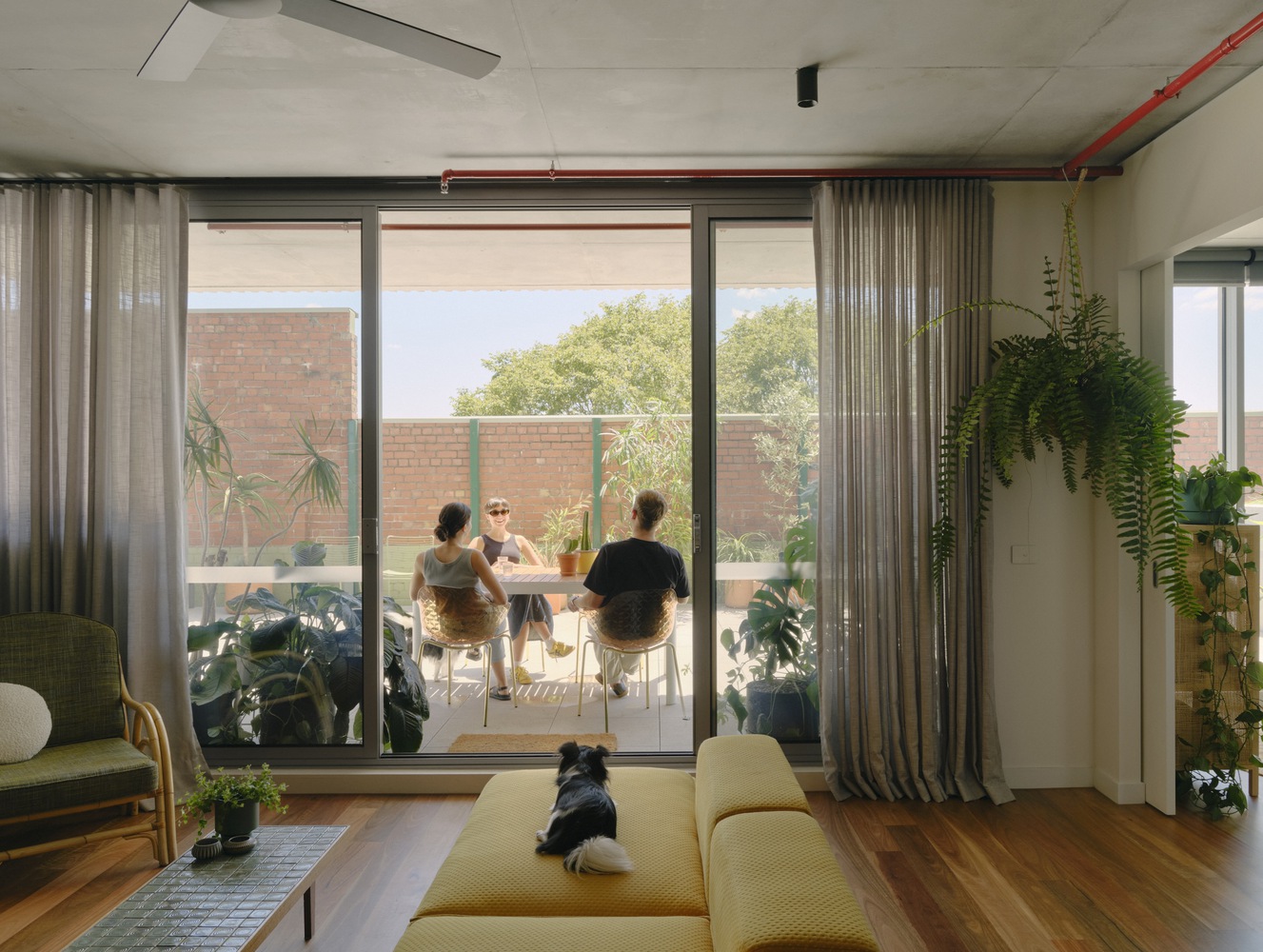 | 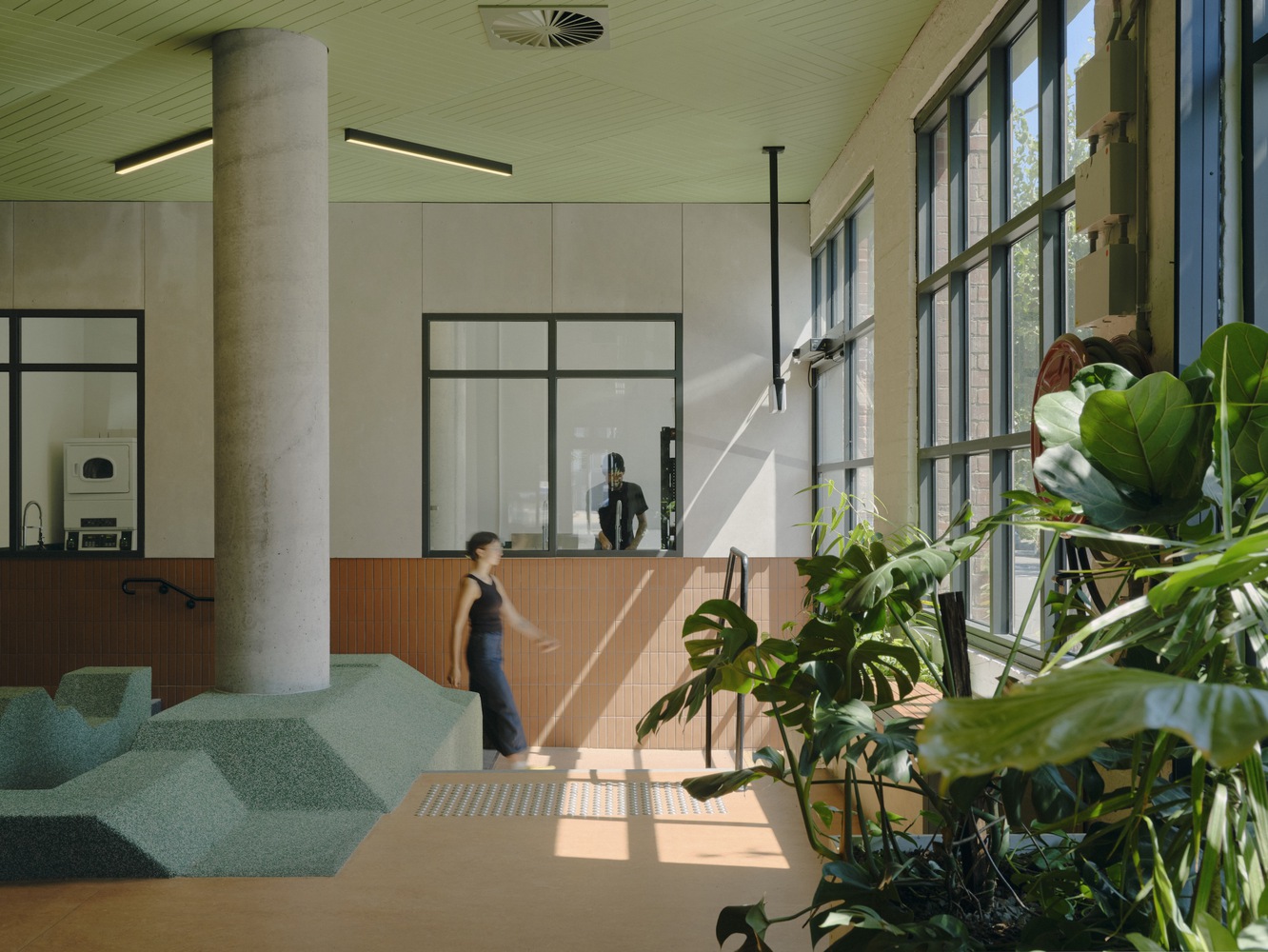 |  |
Fieldwork-38 Albermarle Street Residential Building
필드워크가 설계한 아파트는 호주에서 실험적인 거주공간을 제안한다. 먼저 5년동안 임대 후 거주자의 선택에 따라 분양을 받을 수 있는 독특한 프로그램으로 제안된다. 총 73개의 세대는 1룸, 2룸, 3룸 각기 다른 크기와 구성으로 제공된다. 무엇보다 지속가능한 공동체 생활을 목표로 내부 중심부에 위치한 복도와 공용공간을 거주자가 활용할 수 있도록 되어 있다.


| House_REF(하우스사례보기) |

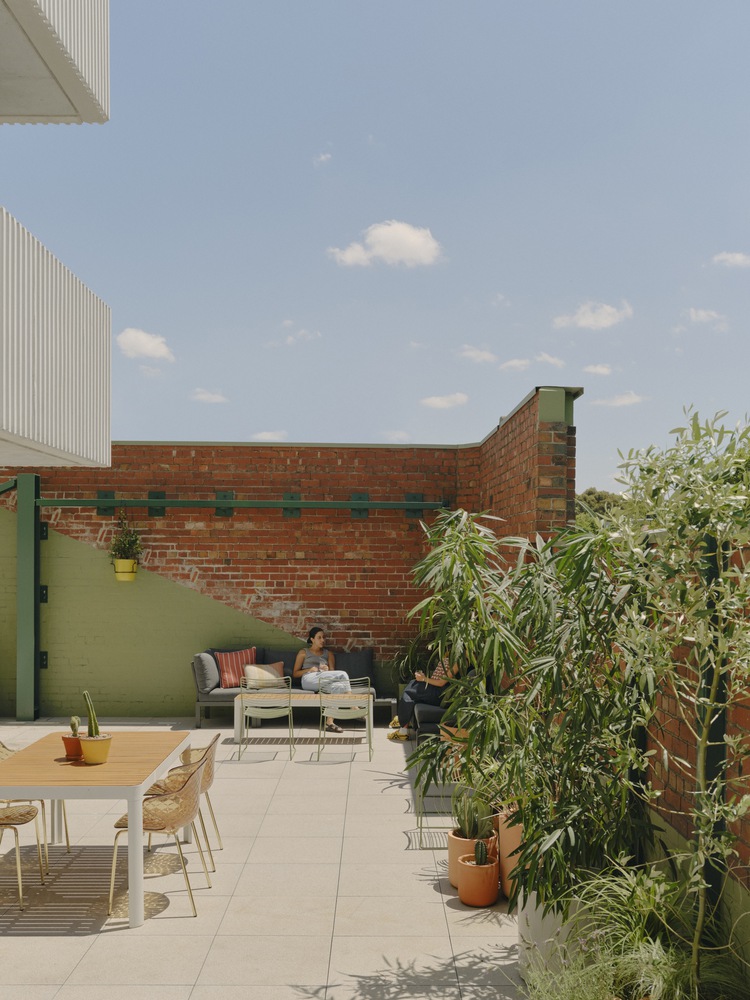
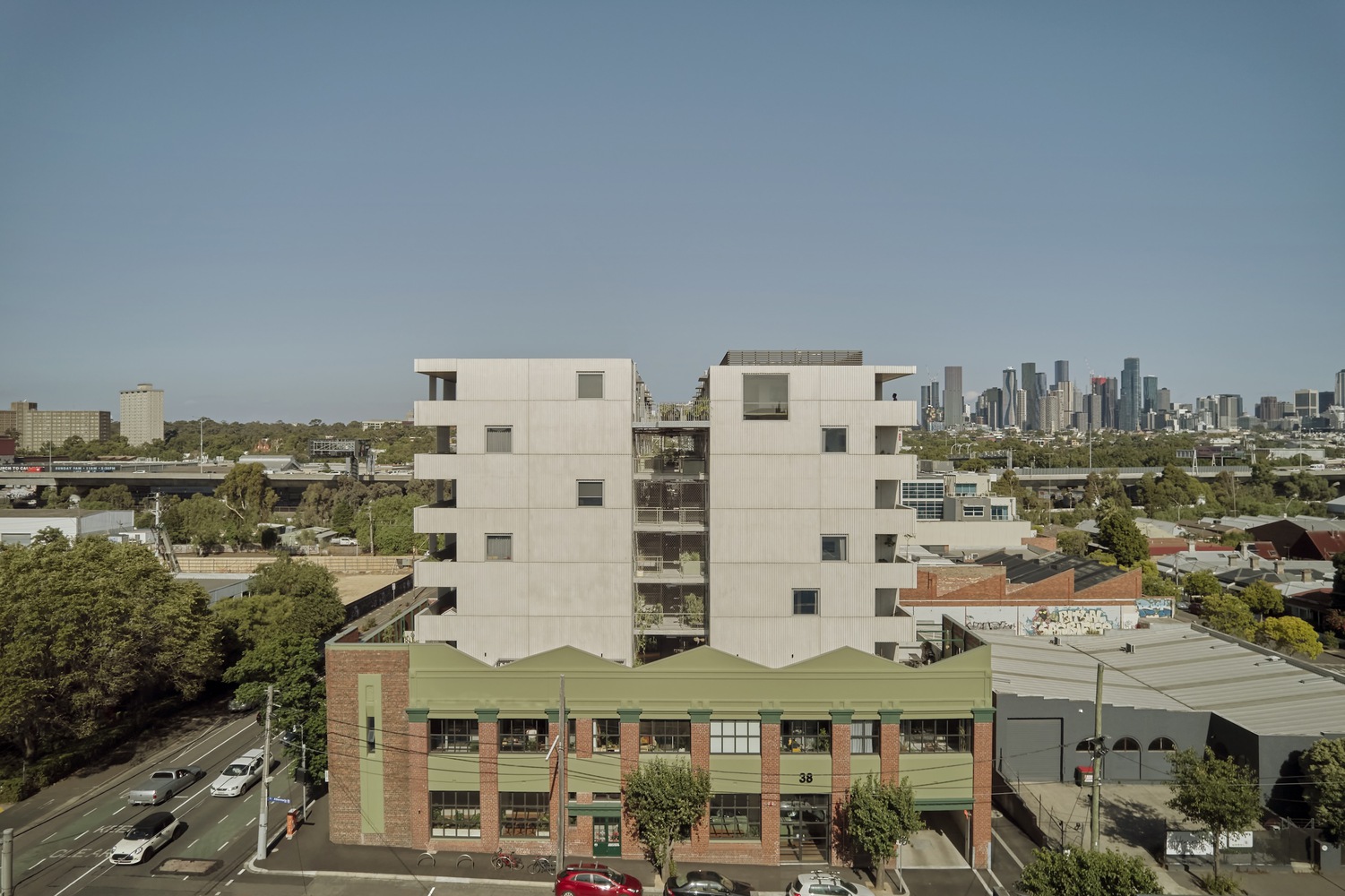
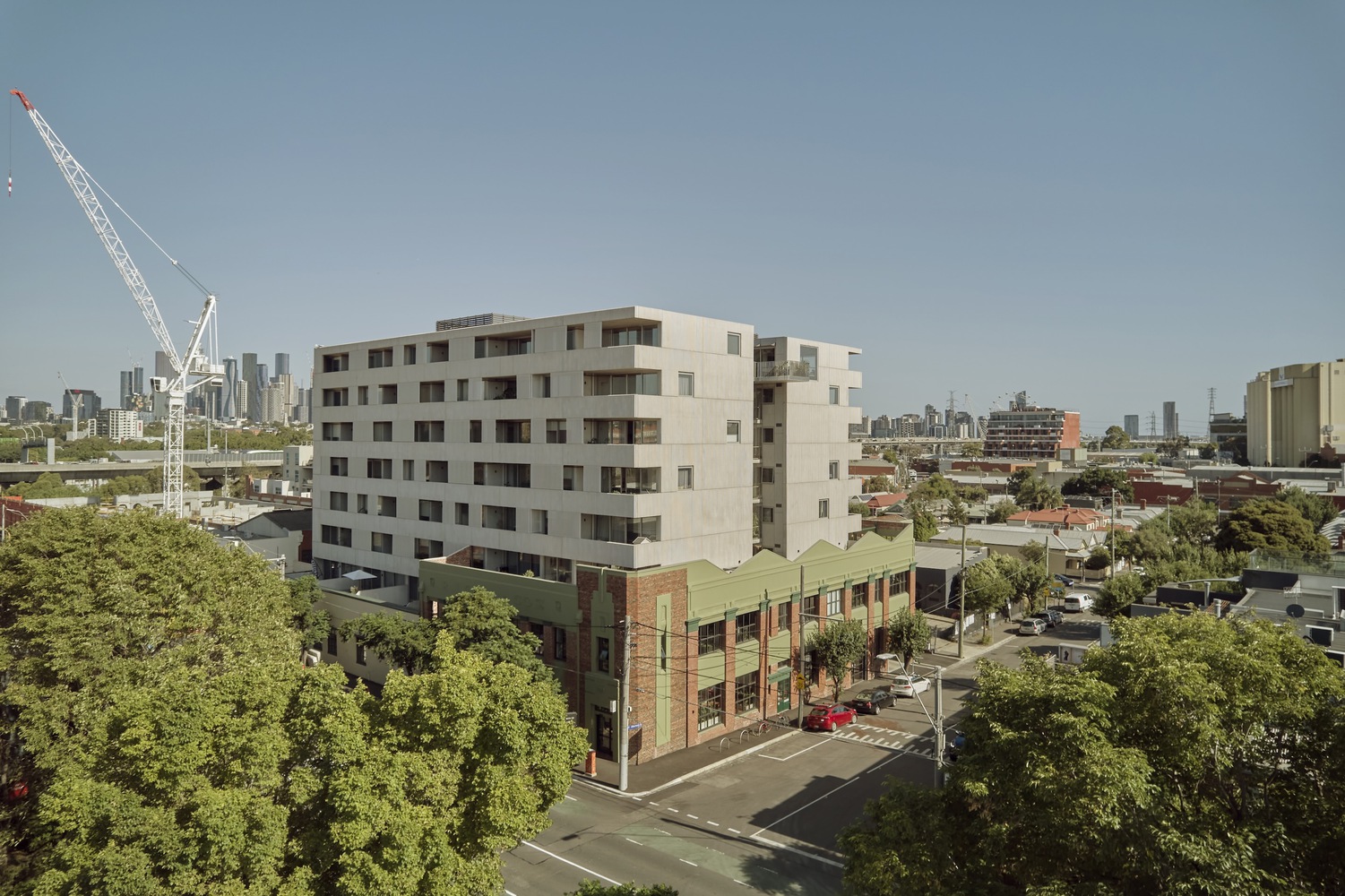


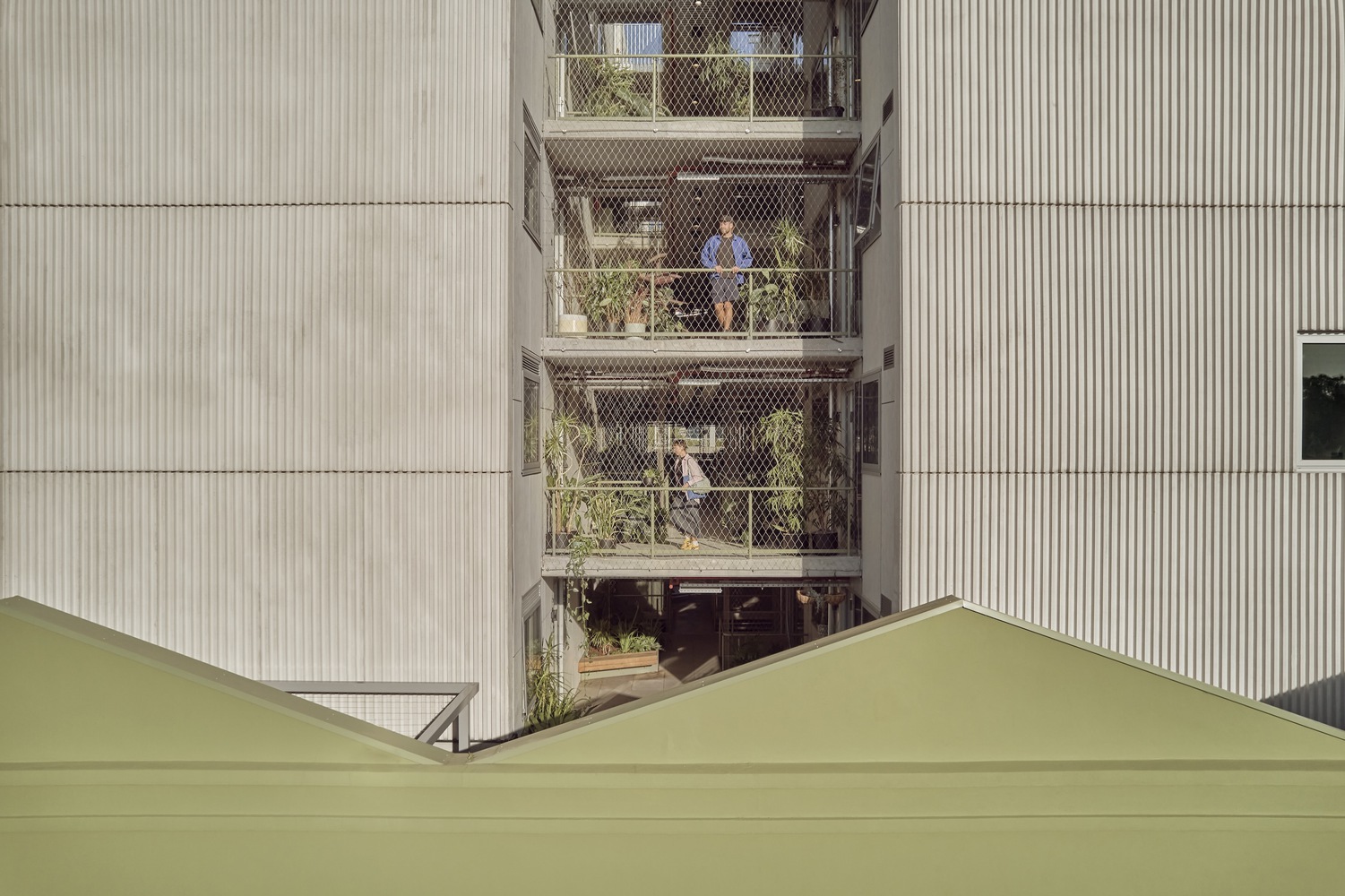

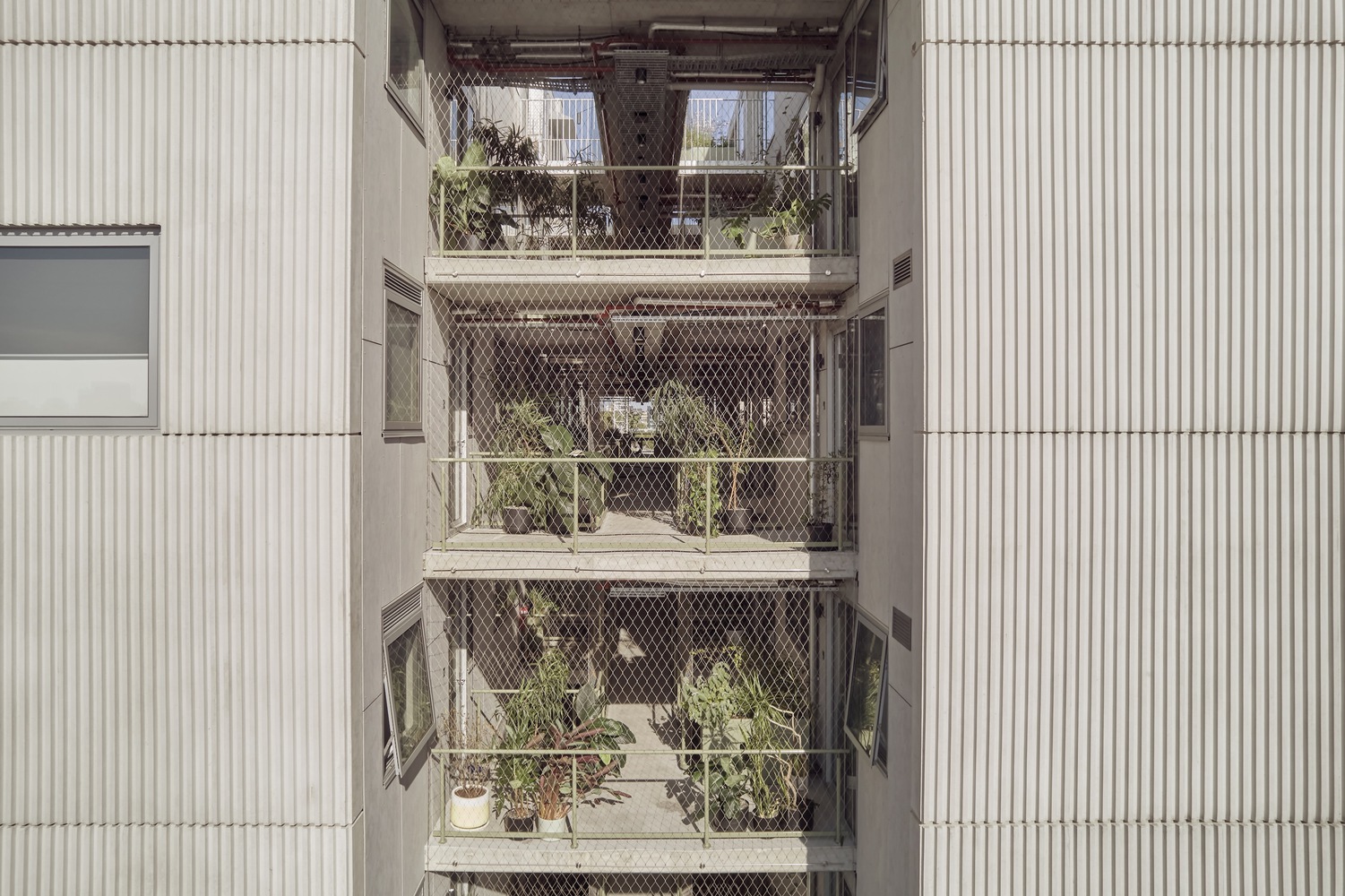

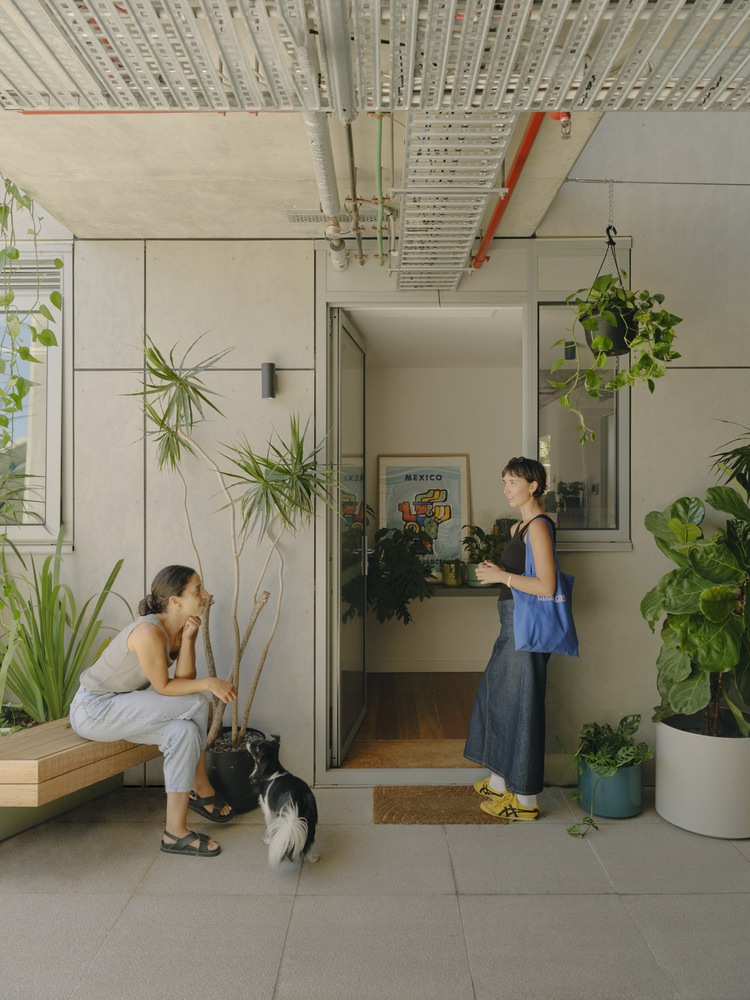


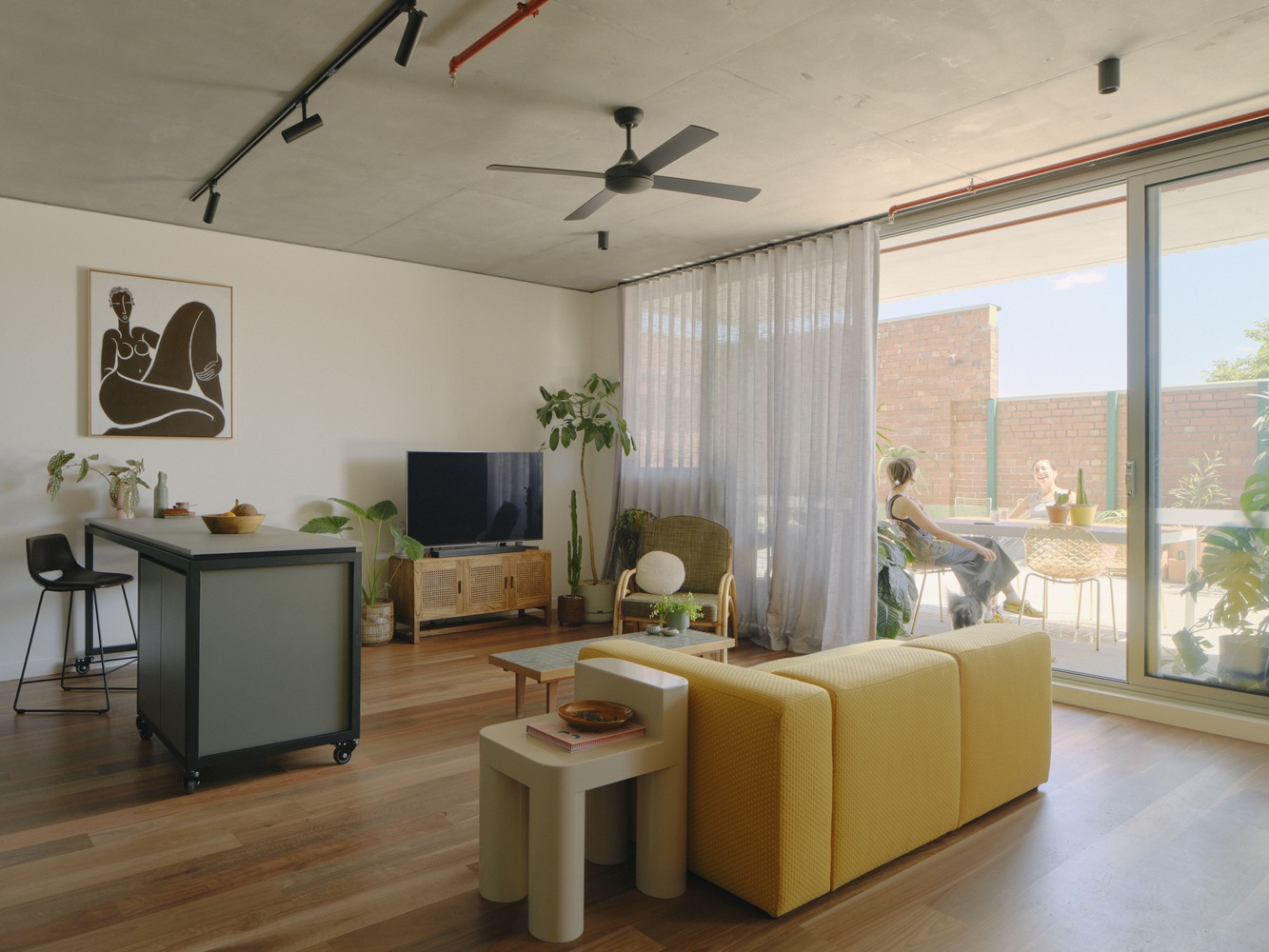






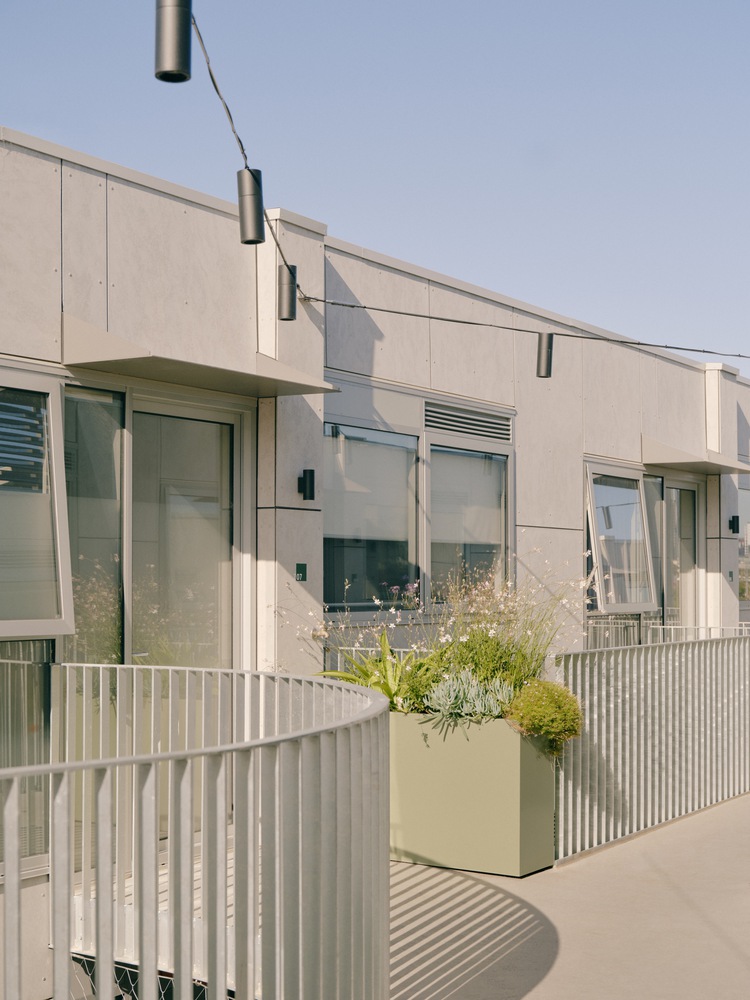






8 Albermarle Street, designed by Fieldwork for Assemble, delivers the country’s first medium density ‘built-to-rent-to-own’ (BTRTO) development, facilitating healthier, socially connected and financially sustainable homes in Melbourne’s inner north-west. The 73-apartment project, combining one, two and three bedroom units, is the first step in delivering Assemble Futures’ BTRTO strategy. The initiative, founded by housing developer and community management business Assemble, allows residents to rent new apartments for up to five years with the option to purchase the property for a fixed price at the end of the lease period. 38 Albermarle Street interrogates and elevates typical medium-density living standards while crafting opportunities to meaningfully connect residents — with the landscape, the surrounding urban fabric and each other.
The existing building on the site, designed by Australian architect Harry A. Norris, is a significant early industrial structure, which was a former recording studio, CD and cassette factory Dex Audio. The starting point for Fieldwork's design was to find a way to adapt the site to its new residential function while respecting the existing building. This was achieved through interventions on the ground plane and efforts to create a dialogue with the broader context of the neighborhood. The 1950s, '60s and '70s, walk up apartments scattered through Melbourne’s inner suburbs became a key point of reference for Fieldwork — in particular, the way that residents personalize the apartments’ external circulation paths. Typically personalized with pot plants, bicycles and outdoor furniture, “these spaces serve as an informal extension to the living areas and make for a nice transition between public and private — an expression you simply don’t get in an internal corridor arrangement” says Quino Holland, Co-Director of Fieldwork. Inspired by this spatial philosophy, 38 Albermarle Street is innovatively split into two individual towers connected by an external breezeway. A landscaped, semi-circular void connects each level — an artistic response to mandated tower crane access through the site — while each apartment is connected to the breezeway by a bridged verandah that encourages residents to personalize the shared environment. “This ‘connective tissue’ becomes the focus of the architecture, building a nurturing and neighborly place,” says Quino.
Seeking to address the perceived and actual limitations of apartment living, the design team revisited concepts implemented at 122 Roseneath Street — a previous Assemble development designed by Fieldwork. This project was informed by the life that is enabled through a typical single fronted terrace house and introduced facilities that would allow residents to enjoy “as full a life as if you’re living in your own house with your own backyard, front verandah, back shed and garden,” says Quino. Building on these principles, 38 Albermarle Street is designed to be pet-friendly and kid-friendly and encourage a diverse cohort of residents. On the ground floor, a multi-purpose communal workshop with a bike repair station, workbench, tools and industrial sinks accommodates DIY undertakings, creative projects and repairs, while a laundrette gives residents flexibility to convert their own laundry space to alternate use. A parcel room supports the secure delivery of goods, while a lending library encourages residents to share useful but rarely used items such as kitchen items and power tools amongst the community.
An adjacent hospitality space, aptly named ‘Cassette’ in tribute to the old building’s origins, is run by Assemble’s Neighbourhood Team and designed by Six Degrees Architects, offering a community centric intermediary between Assemble, the residents and the broader community. These additions deliver amenities previously considered unobtainable in typical Australian apartment developments, fostering incidental moments of neighborly interaction. Non-glazed fixed panels in all apartments allow for pet doors to be installed with ease, while a dedicated dog washing bay on the first floor encourages higher levels of pet ownership and care. Marmoleum floors create a resilient, low-maintenance finish in the communal spaces to endure wear from pets and kids, while the apartment interiors are designed with a focus on quality and durability. Secure pram parking and play areas are incorporated in multiple locations, with 140 secure bicycle parking spaces provided within their own dedicated storage area, accessed via the lobby. “38 Albermarle St has been an opportunity to explore and implement small design moves in communal spaces, to great impact,” explains Project Architect Briony Massie.
from archdaily
'House' 카테고리의 다른 글
| *동굴동굴 [ Olgooco ] The Inside Home (0) | 2023.10.27 |
|---|---|
| *스플릿 레벨 하우스 [ IGArchitects ] Building Frame of the House (0) | 2023.10.26 |
| *미니멀리즘 아트 갤러리 앤 홈 MESURA Turns an Industrial Space in Barcelona into a Minimalis (0) | 2023.10.20 |
| *현대와 전통의 만남: 타타쿠아 하우스의 건축적 미학 [ Rcubo ] Tatakua House (0) | 2023.10.18 |
| *브릭워크 인 런던 DROO covers residential unit's protruding volumes in textured brickwo (0) | 2023.10.17 |